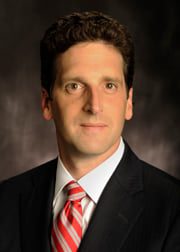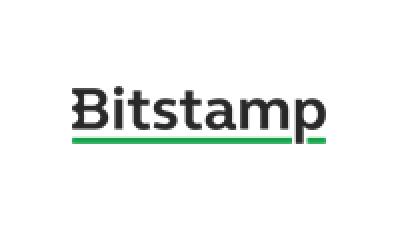Ex-NYDFS Superintendent Benjamin Lawsky refutes criticism on Bitcoin work at American Banker event
On Tuesday, former New York Department of Financial Services (NYDFS) Superintendent Benjamin Lawsky responded to criticism from the Bitcoin community that he may have drummed up consulting work for himself by issuing controversial rules for digital currency companies – known as BitLicense – before he left his post last month, reported Reuters.
Lawsky, who founded his own firm to advise businesses on regulation and other matters, made his first public appearance since his transition on Tuesday at American Banker’s Digital Currencies + The Blockchain conference.
As reported by Reuters, American Banker editor-in-chief Marc Hochstein asked Lawsky about the possible conflict of interest in his issuing the BitLicense on June 3, making New York the first U.S. state to do so.
“To clear the air,” said Hochstein, “what would you say to someone who would think that maybe you built yourself a revolving door?”
Lawsky responded that he was prohibited from doing any work before the financial services department for two years, including behind-the-scenes work. He added that he is barred for life from working on any matter he worked on at the department.
“The rules are very clear,” said Lawsky, as reported by Reuters. “If anyone…said ‘I want to hire you to help get a BitLicense from DFS,’ no can do.”
However, Lawsky did not rule out taking on digital currency clients.
Lawsky left the financial services department on June 16, and the following day he registered The Lawsky Group in Delaware.
The company has a Manhattan address, according to the company website, whose domain name was registered in early May. The building is still under construction; Lawsky told Reuters he would move into the facility in the fall.
While at the conference, Lawsky said bank regulators are likely to take additional action to force banks to bolster their cybersecurity processes as hackers continue to find ways to infiltrate institutions’ defenses, reported American Banker.
Cybercrime poses “a huge threat to our financial system,” Lawsky said.
He added that it “is increasing in sophistication every day and more and more I am amazed by the ingenuity of hackers and the dangers they present. The hacking phenomenon is not going away.”
Lawsky predicted that regulators will boost efforts to tackle cybercrime. “You are going to see a lot of action around cybersecurity and the regulation in that area.”
But cybersecurity is just one of the growing regulatory challenges banks face, he said.
American Banker said financial institutions also struggle with tougher Bank Secrecy Act and anti-money-laundering regulations that at times could put pressure on other compliance. For instance, banks must collect and hold massive amounts of information to meet Know Your Customer rules, ensuring they are not banking with individuals involved in illicit activity.
But databases loaded with valuable customer data could be enticing to hackers. Lawsky said at the conference that while financial institutions need to balance cybersecurity and money-laundering protections, they often keep additional customer data, which they should dispose of.
“Sometimes financial institutions are sitting on a lot of personal information they don’t need to sit on and are not required to sit on and oftentimes do not even know they are sitting on,” said Lawsky, as reported by American Banker.
He said that if a bank is retaining holdover customer information from leftover mergers or decades past that “you want to purge that [information] if you don’t need it.”
On the matter of anti-money-laundering, Lawsky was a bit critical of regulators’ method of ensuring bankers are keeping illicit activity out of their banks.
“One thing that [regulators] need to do a lot of thinking about going forward is in the past regulators really focused on the results of firms’ AML efforts,” said Lawsky.
He said if a bank missed a lot of red flags, regulators launch an investigation and force the institution to review all of their transactions; however, “regulators have not spent enough time actually looking at the filtering systems themselves and beforehand analyzing if a bank’s filtering system is adequate.”
American Banker also reported on Lawsky’s comments on BitLicense; he said of the license, which has received mixed reviews, that “the proof will be in the pudding.”
If a number of firms apply for BitLicense and are able to draw customers and investment, it will signal that regulations is doing its job, said American Banker.
“My hope is that will see a flood of companies overtime that want to be regulated because of the good that it brings.”
Blythe Masters, who delivered the opening keynote at the conference, said blockchain technology can help financial institutions improve customer service.
A former JPMorgan Chase executive and now the chief executive of blockchain technology firm Digital Asset Holdings, Masters said the first application of blockchain technology will be post-trade processing instead of payments, securities, or derivatives solutions. She said processing is something banks must accelerate.
“I believe that [blockchain] technology has the potential to truly change the way the financial world operates, to reduce costs, reduce efficiency, reduce risks and ultimately provide better customer service, which ultimately is what financially services needs to be all about,” said Masters, as reported by American Banker.
At the conference, Masters said one of the most obvious problems in the banking sector is “the simple fact of settlement latency,” referring to delays in asset transfer between the time of commitment and the finalizing transaction.
Back-end processing of financial transactions may take days to complete, or even months. Masters said costs connected to inefficiencies and recordkeeping are significant and the sector is under considerable pressure to reduce its operating costs.
Blockchain technology has the potential to address this issue, but Masters acknowledged that such a technology has limitations.
“Thinking carefully about tradeoffs between permissioned and non-permissioned networks is a key debate in this space,” she said, as reported by American Banker.
Permissioned – or private – networks are those in which participants are selected and are limited to known or trusted entities. Masters said the notion of distributed ledger technology has evolved in the direction of restricted access.
“The thinking in this space is evolving very rapidly,” she said. “I have no doubt there are roles in life for both types of technology.”
Masters concluded that the blockchain “has the potential to be highly disruptive of certain business models, but also has the potential to be highly empowering of others.”













